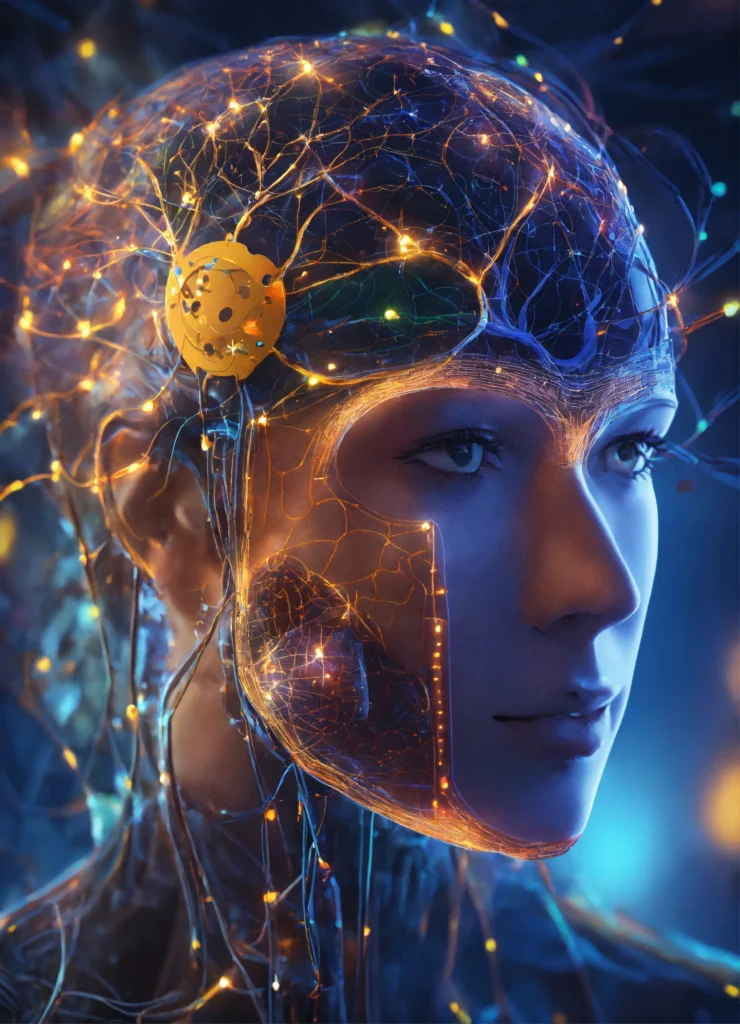I never believed in the supernatural. Ghosts and ghouls were just stories meant to scare little kids and keep them from wandering off at night. I was a rational guy—a budding neuroscientist who preferred the cold, hard facts of biology to the wild tales of the supernatural. But then again, I’d never had a summer quite like this one.
It all started when I found that dusty, old textbook at the local thrift store. “Advanced Neural Techniques” was embossed in gold on the cracked spine. The pages were yellowed, filled with scribbled notes that looked like they were written by someone who’d lost their mind. I couldn’t resist buying it for fifty cents.
Curiosity piqued, I spent hours poring over the text. It detailed an experimental technique for enhancing memory retention—something I was already studying in my undergraduate program. There was a chapter that caught my eye: “The Infinite Neural Loop.†It was about using specific stimuli to reinforce memories, creating an endless cycle of recollection. It sounded brilliant, but the author warned of unintended consequences. I brushed it off, excited by the prospect of conducting my own experiment.
A week later, after gathering my supplies—a few EEG electrodes, some recordings of white noise, and the oddest mix of scents from my local health shop—I was ready. I set up my workstation in my dimly lit basement, the kind of place that felt a little too isolated, a little too quiet. My heart raced with anticipation. If this worked, I could revolutionize the way we understood memory!
I strapped on the electrodes, flipped on my makeshift machines, and began the session. I immersed myself in sensory stimuli: the whirring of a fan, the scent of peppermint, the sound of ocean waves. I concentrated hard, repeating phrases like “I remember” and “this is important” as the apparatus hummed around me.
At first, it felt exhilarating. Memories surged forth, vivid and bright. I could recall every birthday, every friend, every fleeting moment of happiness. It was like reliving my life in hyperdrive. But as the session continued, the world around me began to blur.
Suddenly, I was jolted out of my reverie. I looked at my watch. An hour had passed, but it felt like just moments. Had I fallen asleep? I shook my head, disoriented. The white noise continued to wash over me, but something felt… off.
Over the next few days, I became obsessed. I repeated the session, adjusting the stimuli, trying to capture that initial high. But each time, I felt more disoriented. My memories began to blend together, and I couldn’t shake the feeling of déjà vu. It was like living the same moments over and over, but with increasing urgency. Friends called, concerned about my absence, but I brushed them off, too entranced by my findings.
The world outside faded, and I descended deeper into my research. Each session grew longer, more intense. I began to notice strange patterns in my recollections—conversations I’d never had, events that never occurred. Yet they felt real, just as real as the memories I cherished.
Then came the night that everything changed. I started my experiment, just like before, but this time something was different. The scents intensified; the noises morphed into a cacophony of discordant whispers. I felt the walls of my basement close in, suffocating. Panic washed over me, but I couldn’t stop. I was compelled to keep going, to unlock whatever madness I had unleashed.
As the stimulation peaked, the world dissolved into darkness. I opened my eyes, but I wasn’t in my basement anymore. I was standing in a familiar room—my childhood bedroom. Everything was exactly as I remembered it, down to the faded posters and the toys scattered on the floor. But something felt wrong. The air was thick with a sense of dread.
“Help me!†I screamed, but my voice echoed back in a mocking tone. I was trapped.
Time lost all meaning. I relived my childhood over and over, each time experiencing the same events but from different perspectives. I watched my younger self make decisions I wished I could change, laughed at moments that were supposed to be joyful but felt hollow. I felt the gnawing fear of something lurking in the shadows, something that knew I was stuck here.
Days passed—at least, I think they did. I lost count. I tried to wake myself up, but the more I fought, the deeper I sank. I was trapped in a loop, an infinite cycle of memory and regret, and I could feel the weight of despair pulling me down, down into the abyss.
And then, just when I thought I couldn’t take it anymore, a voice echoed through the darkness. “It’s time to wake up.â€
I jolted awake—back in my basement, the machines humming quietly. Relief flooded through me, but something felt off. My watch showed the same time it had when I first started the experiment. I glanced at my phone: three missed calls from my friends, all made the same moment I had started my session. Had I really been stuck in that loop for… no time at all?
I stood up, shaking off the residual disorientation, but the relief was short-lived. As I walked to the stairs, I caught a glimpse of myself in the mirror. My reflection didn’t match what I saw. The face staring back was twisted, eyes hollow and dark.
The realization hit me like a punch to the gut: I had successfully enhanced my memory, but it was at a terrible cost. I was trapped in a neural loop, an echo of my former self, forever reliving those moments—never able to escape the infinite cycle of my own making. And in that moment, I understood: the real horror wasn’t the memories I lost, but the one I had become.
Source: Read MoreÂ
